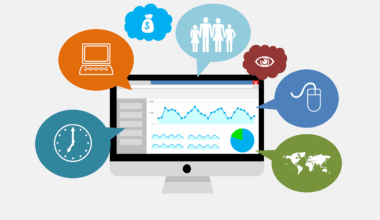How Health Savings Accounts Promote Consumer-Driven Healthcare
Health Savings Accounts (HSAs) represent an innovative approach to personal finance, particularly in managing healthcare costs. These accounts are designed to provide individuals with a means to save for medical expenses on a tax-advantaged basis. Contributions to HSAs are tax-deductible, thus lowering taxable income and spurring increased savings for potential future expenses. The funds in these accounts can grow over time through investments, enhancing their value and enabling individuals to manage their healthcare costs more effectively. Importantly, HSAs empower consumers to take control over their healthcare decisions, encouraging them to shop around for services, negotiate costs, and make informed choices regarding their care. This shift from passive consumption to active engagement can have a significant impact on overall healthcare spending, promoting a culture of cost awareness among consumers. Additionally, HSAs are portable, meaning individuals can retain their savings even when they change jobs or health plans, adding another dimension of flexibility to personal finance planning. By promoting awareness and facilitating savings, HSAs are shaping a new era of consumer-driven healthcare solutions, making them increasingly valuable for consumers navigating today’s healthcare landscape.
As consumers begin to understand the potential benefits of HSAs, they can also appreciate the overall financial health these accounts can promote. One of the remarkable aspects of HSAs is that they can be used to cover a variety of qualified medical expenses. These expenses include deductibles, copayments, and even dental and vision care, offering flexibility for account holders. The combination of tax savings and the ability to allocate funds for healthcare can lead to enhanced personal financial stability. HSAs not only foster a proactive approach to healthcare spending but can also serve as a powerful tool for long-term financial planning. Individuals can invest the funds within their accounts, potentially amplifying growth and providing additional resources for future medical needs. As healthcare costs continue to rise, HSAs emerge as an essential component of responsible personal finance management. Education about HSAs remains vital, as many consumers may not fully understand their potential or how to best utilize these accounts. By fostering a culture of awareness and financial literacy, HSAs can help consumers become better equipped to make informed decisions about their health and financial futures.
The Role of HSAs in Consumer Behavior
The introduction of Health Savings Accounts has fundamentally changed how consumers interact with healthcare services. Traditionally, many individuals viewed healthcare as a service provided by insurance, expecting minimal direct costs. With HSAs, however, consumers are encouraged to take an active role in managing their healthcare expenditures. This engagement often leads to smarter financial decisions, such as comparing prices and researching the quality of care. Consequently, consumers are no longer passive recipients of care, they become informed decision-makers. Research has shown that when people utilize HSAs, they tend to be more cost-conscious, often leading to greater satisfaction with their healthcare choices. Furthermore, HSAs promote preventive care, as consumers are incentivized to seek routine check-ups and screenings to avoid higher costs in the future. This cultural shift can lead not only to improved health outcomes but also to a healthier bottom line for healthcare systems. The empowerment felt by individuals illustrates how HSAs can positively influence consumer behavior and promote a more sustainable model of healthcare, reinforcing the concept that informed consumers make for more efficient and effective healthcare systems.
Many employers are recognizing the power of HSAs and have started to integrate them into their employee benefits package. By offering HSAs, employers not only provide a valuable tool for their employees’ financial well-being but also facilitate a more engaged workforce when it comes to healthcare decisions. As employees learn to manage their HSAs, they can gain a deeper understanding of their health expenses, promoting a proactive approach to wellness. Additionally, HSAs can return significant cost savings for employers. Lowering overall healthcare expenses is beneficial for both parties in the long run. Educating employees on how to utilize HSAs effectively can lead to increased employee satisfaction and retention. By supporting their workforce in understanding and leveraging HSAs, employers can contribute to healthier lifestyles while also benefiting financially. In an era where employer-sponsored healthcare statutes are evolving, HSAs represent an innovative solution for managing rising costs. Companies that recognize this trend can enhance their benefits package while fostering a healthier, more empowered workforce, thus driving both mutual financial and health-oriented gains well into the future.
The Tax Benefits of HSAs
The tax advantages associated with Health Savings Accounts are among their most appealing features. Contributions are made pre-tax, significantly lowering the taxable income of the account holder. This initial tax deduction can represent substantial savings that are particularly advantageous for low or middle-income earners. Furthermore, investments and interest earned within an HSA grow tax-free, providing an excellent opportunity for long-term wealth accumulation. Withdrawals for qualified medical expenses are also tax-free, ensuring that account holders can maintain their savings intact while addressing healthcare needs. The triple-tax advantage of HSAs—tax-deductible contributions, tax-free growth, and tax-free withdrawals—positions them uniquely within the realm of personal finance strategies. Individuals can strategically plan their finances, allowing them to maximize their healthcare expenditures without incurring additional tax burdens. This aspect reinforces the importance of knowing how to leverage HSAs effectively in personal finance. By incorporating HSAs into their financial plans, individuals can create a safety net that combines health and wealth, ultimately leading to a more comprehensive approach to their overall financial well-being.
Despite the many benefits of HSAs, some challenges remain, particularly regarding consumer accessibility and understanding. Not all consumers are equally informed about HSAs or how to set them up. Education is critical in bridging this gap, as many individuals may hesitate to utilize an HSA due to lack of knowledge about how it functions. Additionally, some lower-income individuals might find it challenging to contribute enough to make HSAs viable. Addressing these issues requires an investment in educational outreach and creating more user-friendly resources for consumers. Healthcare plans should include clear explanations about HSAs and promote the potential benefits they offer through workshops or informational literature. Engaging employees in discussions about their healthcare finances can demystify HSAs and encourage their utilization. As this knowledge spreads, more individuals will take full advantage of the opportunities that HSAs provide. Increasing access to HSAs and making them more comprehensible will ultimately empower consumers and enhance their financial stability as they navigate the complexities of healthcare costs.
Conclusion
Health Savings Accounts represent more than just a way to save for healthcare expenses; they embody a shift towards consumer-driven healthcare. By encouraging proactive engagement and informed financial decisions, HSAs empower individuals to take charge of their health and finances. The unique tax advantages, coupled with a growing awareness among consumers about healthcare expenditures, make HSAs a critical component of personal finance strategies. Employers, too, benefit from integrating HSAs into their offerings, witnessing enhanced employee satisfaction and potential cost savings. The healthcare landscape is evolving, and with it, a paradigm shift towards a more educated and engaged consumer. As more individuals familiarize themselves with the benefits of HSAs and healthcare financing, the potential for improved health outcomes and a more robust financial future increases. Overcoming barriers to accessibility and understanding will ensure that HSAs remain a viable option for all consumers. Ultimately, Health Savings Accounts can be a powerful tool that fosters a more sustainable and equitable healthcare system, promoting wellness and financial stability through informed choices and consumer empowerment.
In conclusion, as we witness the evolution of personal finance strategies, Health Savings Accounts emerge as a transformative element in consumer-led healthcare. By fostering a better understanding of healthcare expenses, HSAs empower individuals to make thoughtful choices regarding their health and finances. The unique benefits of HSAs, including tax advantages and flexible spending options, encourage consumers to think critically about their healthcare usage. Ultimately, HSAs are shaping the future of how individuals manage their healthcare costs, promoting a culture of financial literacy and personal responsibility. As we navigate an increasingly complex healthcare landscape, the active role of consumers empowered by HSAs will play a vital part in driving overall improvements in both personal healthcare decisions and the healthcare system as a whole. For those considering utilizing HSAs, taking the time to educate oneself on their benefits and operational aspects can yield significant dividends for their financial health. In this new era of consumer-driven healthcare, HSAs will undoubtedly be at the forefront of innovation, enabling individuals to achieve their healthcare and financial goals concurrently.


